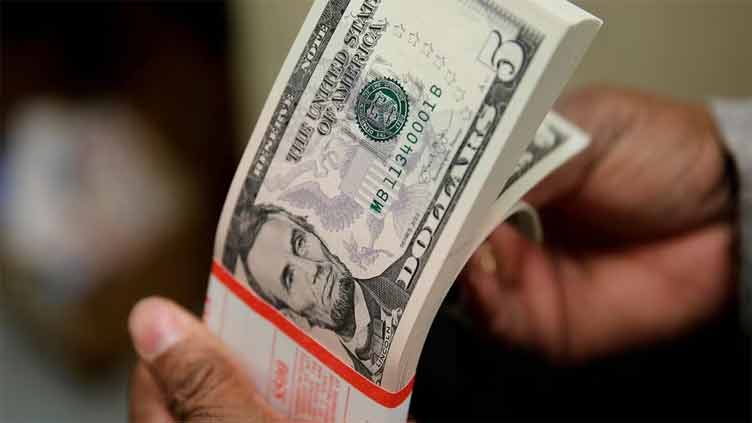The US dollar started the new business week on Monday from where it had left during the last session, with a Rs1 gain in open market exchange rate, as the rupee seems unable to halt the latest slide which is erasing the gains it had made after reaching a record low against the world’s dominant currency.
Meanwhile, a similar trend was witnessed against the Japanese yen as the dollar climbed to its highest levels in over a year, supported by a scaling back of expectations for US Federal Reserve interest rate cuts next year.
The yen is considered a safe haven currency like two other peers – the US dollar and the Swiss franc.
As the market approached the midday trading in Pakistan, the dollar was available for Rs289 amid a high demand, which is also being attributed to market manipulation, as the investors are opting for the safe haven currency amid the ongoing International Monetary Fund (IMF) of the $3 billion stand-by arrangement.
On the other hand, the dollar’s official exchange rate in interbank intraday trading had so far increased by 87 paisa, which means the greenback was available for Rs287.90 against the previous closing of Rs287.03 on last Friday.
The weakening rupee coincides with the history-making bullish trend being witnessed in the stock exchange where the KSE-100 has now shattered another record by crossing the 56,000 ceiling.
Last month, the State Bank of Pakistan’s Monetary Policy Committee had decided to maintain the interest rates to the current record-high level of 22pc despite the signs of an easing inflation, making many in the market to expect a rate cut.
The rupee is under pressure amid a high demand – described by many as a return of market speculation after the short-lived government crackdown – as the IMF is pressing ahead with its demand to meet all the conditions required under the $3 billion stand-by arrangement.
Hence, this scenario is creating uncertainty as experts believe that even the release of the second tranche after a successful first review won’t improve dollar supply.
The IMF has been adamant to stick with the criterion of market determining the currency exchange rate, thus closing the door for any government intervention to boost the local currency.
YEN ON A SLIDE
Japanese authorities were unusually quiet as the yen, down almost 14pc this year, weakened again although markets remained alert to potential intervention to shore up the Japanese currency.
Markets also digested news late on Friday that Moody’s has lowered its outlook for the US credit rating to “negative,” while focus turned to Tuesday’s US consumer price index.
Fed policymakers, including Chair Jerome Powell, last week suggested the battle against inflation may not be over yet, prompting a scaling back of market rate cut bets that pushed up short-dated Treasury yields and supported the greenback.
The dollar on Monday rose to 151.85 yen, its highest level since October 2022. It was last up 0.2pc, having last week rallied around 1.4pc in the biggest weekly jump against the yen in three months.
The dollar index, measuring the greenback’s value against other major currencies, was a touch firmer around 105.80 and holding on to most of last week’s gains.
The euro was hovering around $1.0693, broadly steady against the dollar.
Elsewhere, sterling stood firm at $1.2231 ahead of UK average weekly earnings data on Tuesday and a CPI reading on Wednesday, after GDP data last week showed the economy failed to grow.
Post Views: 88


 Sports3 months ago
Sports3 months ago
 Sports3 months ago
Sports3 months ago
 Fashion3 months ago
Fashion3 months ago
 World3 months ago
World3 months ago
 World3 months ago
World3 months ago
 Sports2 months ago
Sports2 months ago
 Sports2 months ago
Sports2 months ago
 World3 months ago
World3 months ago






















